Filter by

The subject's matter :self-consciousness and the body
The body may be the object we know the best. It is the only object from which we constantly receive a flow of information through sight and touch; and it is the only object we can experience from the inside, through our proprioceptive, vestibular, and visceral senses. Yet there have been very few books that have attempted to consolidate our understanding of the body as it figures in our experie…
- Edition
- -
- ISBN/ISSN
- 9780262342599
- Collation
- 1 online resource (xxi, 402 pages) :illustrations.
- Series Title
- -
- Call Number
- -

Thinking about oneself :from nonconceptual content to the concept of self
"In this book, Kristina Musholt offers a novel theory of self-consciousness, understood as the ability to think about oneself. Traditionally, self-consciousness has been central to many philosophical theories. More recently, it has become the focus of empirical investigation in psychology and neuroscience. Musholt draws both on philosophical considerations and on insights from the empirical sci…
- Edition
- -
- ISBN/ISSN
- 9780262329767
- Collation
- 1 online resource (xviii, 210 pages)
- Series Title
- -
- Call Number
- -
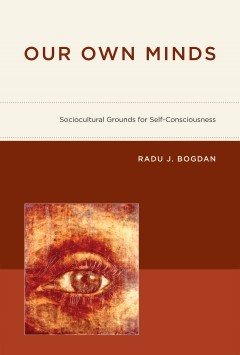
Our Own Minds: Sociocultural Grounds for Self-Consciousness
Here, Radu Bogdan takes a developmental perspective on consciousness and proposes that children's functional capacity for consciousness is assembled during development out of a variety of ontogenetic adaptations that respond mostly to sociocultural challenges specific to distinct stages of childhood.OCLC-licensed vendor bibliographic record.
- Edition
- -
- ISBN/ISSN
- 9780262289214
- Collation
- 1 online resource (xii, 210 pages).
- Series Title
- -
- Call Number
- -
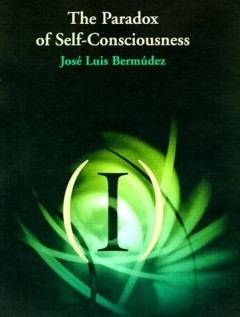
The paradox of self-consciousness
"A Bradford book."In this book, Jose Luis Bermudez addresses two fundamental problems in the philosophy and psychology of self-consciousness: (1) Can we provide a noncircular account of full-fledged self-conscious thought and language in terms of more fundamental capacities? (2) Can we explain how full-fledged self-conscious thought and language can arise in the normal course of human developme…
- Edition
- -
- ISBN/ISSN
- 0585190089
- Collation
- 1 online resource (xiv, 338 pages) :illustrations.
- Series Title
- -
- Call Number
- -
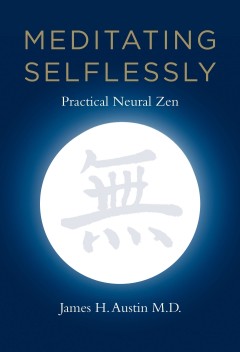
Meditating Selflessly: Practical Neural Zen
This is not the usual kind of self-help book. Indeed, its major premise heeds a Zen master's advice to be less self-centered. Yes, it is "one more book of words about Zen," as the author concedes, yet this book explains meditative practices from the perspective of a " neural Zen." The latest findings in brain research inform its suggestions. In Meditating Selflessly, James Austin -- Zen practit…
- Edition
- -
- ISBN/ISSN
- 9780262300155
- Collation
- 1 online resource (xxiv, 251 pages) :illustrations (some color)
- Series Title
- -
- Call Number
- -
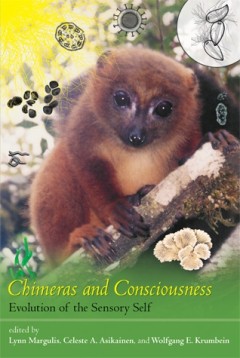
Chimeras and Consciousness: Evolution of the Sensory Self
This title begins the inquiry into the evolution of the collective sensitivities of life. Scientist-scholars from a range of fields - including biochemistry, cell biology, history of science, family therapy, genetics, microbial ecology, and primatology - trace the emergence and evolution of consciousness.
- Edition
- -
- ISBN/ISSN
- -
- Collation
- 1 online resource (xviii, 321 pages, 8 unnumbered pages of plates
- Series Title
- -
- Call Number
- -
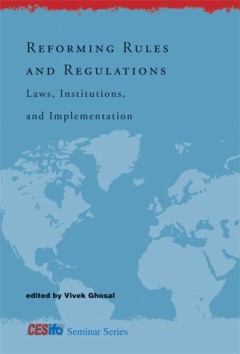
Reforming Rules and Regulations: Laws, Institutions, and Implementation
Contributors examine how regulatory & institutional environments affect the functioning of markets & propose reforms, arguing that quantitative methods should be used to guide policy & to reform rules & regulations. These essays offer methodologies for the assessment of policy alternatives.OCLC-licensed vendor bibliographic record.
- Edition
- -
- ISBN/ISSN
- 9780262289412
- Collation
- 1 online resource (x, 316 pages) :illustrations, maps.
- Series Title
- -
- Call Number
- -
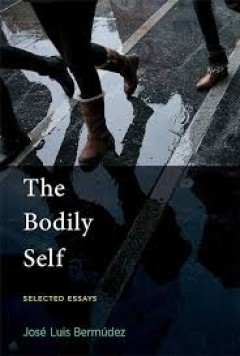
The bodily self :selected essays on self-consciousness
"These essays explore how the rich and sophisticated forms of self-consciousness with which we are most familiar -- as philosophers, psychologists, and as ordinary, reflective individuals -- depend on a complex underpinning that has been largely invisible to students of the self and self-consciousness. Jos?e Luis Berm?udez, extending the insights of his groundbreaking 1998 book, The Paradox of …
- Edition
- -
- ISBN/ISSN
- 9780262344661
- Collation
- 1 online resource (viii, 303 pages) :illustrations
- Series Title
- -
- Call Number
- -
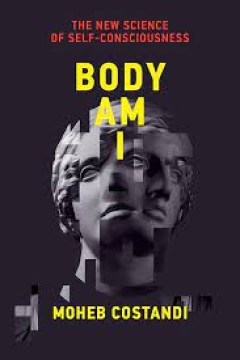
Body Am I: The New Science of Self-Consciousness
"Costandi explains the neuroscience behind how we view our selves and our bodies, drawing from neurological studies on our sense of agency and free will, the neural correlates of mental representations, mirror neurons, and how the brain perceives timing and sensory consequences. He explores case studies of amputees with phantom limb syndrome, people with Body Integrity Identity Disorder (who ha…
- Edition
- -
- ISBN/ISSN
- 9780262368711
- Collation
- 1 online resource
- Series Title
- -
- Call Number
- -

Open minded :searching for truth about the unconscious mind
"An argument against dual process theories and unconscious thought to explain the human mind and behavior" --OCLC-licensed vendor bibliographic record.
- Edition
- -
- ISBN/ISSN
- 9780262375375
- Collation
- 1 online resource
- Series Title
- -
- Call Number
- -
 Computer Science, Information & General Works
Computer Science, Information & General Works  Philosophy & Psychology
Philosophy & Psychology  Religion
Religion  Social Sciences
Social Sciences  Language
Language  Pure Science
Pure Science  Applied Sciences
Applied Sciences  Art & Recreation
Art & Recreation  Literature
Literature  History & Geography
History & Geography